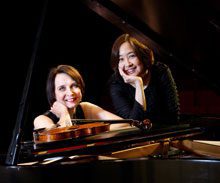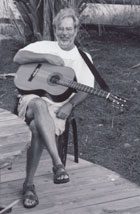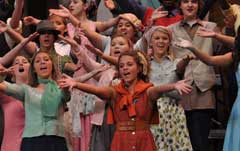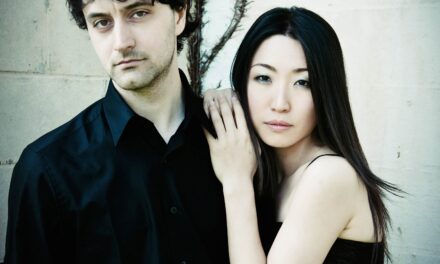Renowned British pianist Simon Mulligan will join the Hilton Head Symphony Orchestra, under the direction of Music Director Mary Woodmansee Green, in a bicentennial tribute to Felix Mendelssohn at the Master and Preludes Series concerts of Sunday and Monday, February 22 and 23.
 During the all-Mendelssohn program Mulligan will play two keyboard masterpieces, the Piano Concerto No. 2 and Capriccio Brilliant. The performance will open with an overture by the composer’s sister Fanny and conclude with his Fifth Symphony, based on Martin Luther’s A Mighty Fortress. Both concerts will take place at Hilton Head’s First Presbyterian Church at 8 p.m.
During the all-Mendelssohn program Mulligan will play two keyboard masterpieces, the Piano Concerto No. 2 and Capriccio Brilliant. The performance will open with an overture by the composer’s sister Fanny and conclude with his Fifth Symphony, based on Martin Luther’s A Mighty Fortress. Both concerts will take place at Hilton Head’s First Presbyterian Church at 8 p.m.
“Felix Mendelssohn has been called the “Mozart of the 19th century,” said Maestra Green in announcing the concerts. “But even though he was born less than 20 years after Mozart’s death, Mendelssohn’s time and milieu were very different; it was a time when musicians were becoming recognized as not only craftsmen, but also artists who deserved respect because of their art. He left us many great and popular compositions, several of which we perform at these concerts as a tribute to his 200th birthday and, as always, for the enjoyment and inspiration of our HHSO audience.”
Simon Mulligan was 19 when he made his debut with the Royal Philharmonic Orchestra; a month later he recorded his first compact disc under the direction of Yehudi Menuhin. For five years he was recital partner to cellist Lynn Harrell and, since 1998, has toured with Joshua Bell through out North America, Europe, and the Far East. Mulligan also composes for film and television and for his jazz quartet. Alfred Brendel invited him to study Beethoven before attending the Fondazione per il Pianoforte at Lake Como, Italy, where his mentors included Charles Rosen, Alexis Weissenberg, and Murray Perahia.
Born in 1809, Jacob Ludwig Felix Mendelssohn was the son of a Berlin banker and a well-educated and musically adept mother. He and his older sister Fanny showed great promise as multi-talented musicians, and by 1820 both had begun to compose. At the age of 17, he had already written a number of masterpieces and was beginning to show his talents as conductor and organizer of musical events. In 1829 he conducted Bach’s Passion According to St. Matthew, the first performance since Bach’s death, prompting a revival of interest in that composer’s music. From then on, his life was a whirlwind of traveling, performing, conducting, and composing. He died in November 1847 after a series of strokes, never recovering from the shock of the sudden death of his beloved sister Fanny six months earlier. His position in music history has changed through the years, but a number of his works have never diminished in popularity.
Fanny Mendelssohn composed and played piano throughout her life, mainly for private family gatherings. Felix encouraged her work, as did her husband, Wilhelm Hensel. Hensel’s Overture, her only known purely orchestral piece, was written around 1830 and probably first performed at one of the Mendelssohn family’s home concerts. Capriccio Brilliante was composed in 1831, orchestrated in early 1832, and first performed in London in July of that year. It is Mendelssohn’s first attempt at a single-movement work for soloist and orchestra, and it takes a number of pieces of Carl Maria von Weber as its model.
Mendelssohn’s First Piano Concerto puts the spotlight squarely on the soloist, with the orchestra as a supporting player. Its three movements are linked together without a break, a technique which Mendelssohn would perfect with his ever-popular 1844 Violin Concerto.
Symphony No. 5, “Reformation” takes its name from both the musical material used and the occasion for which it was intended. In a September 1829 letter Mendelssohn wrote of his intention to compose a symphony for the planned commemoration of the Reformation movement. Though completed the following year, it was not performed during the anniversary celebrations, nor until 1832; the musicians hated it and the composer who conducted the first performance disliked it and set it aside. It was published posthumously in 1868.
Concert tickets are $20, $30, and $40. Call the Hilton Head Orchestra Box Office at (843) 842-2055 to purchase tickets, or log on to the orchestra website at www.hhso.org . American Express, Master Card and Visa are accepted; tickets may be purchased at the door. Program Notes are posted on the website prior to each concert.







